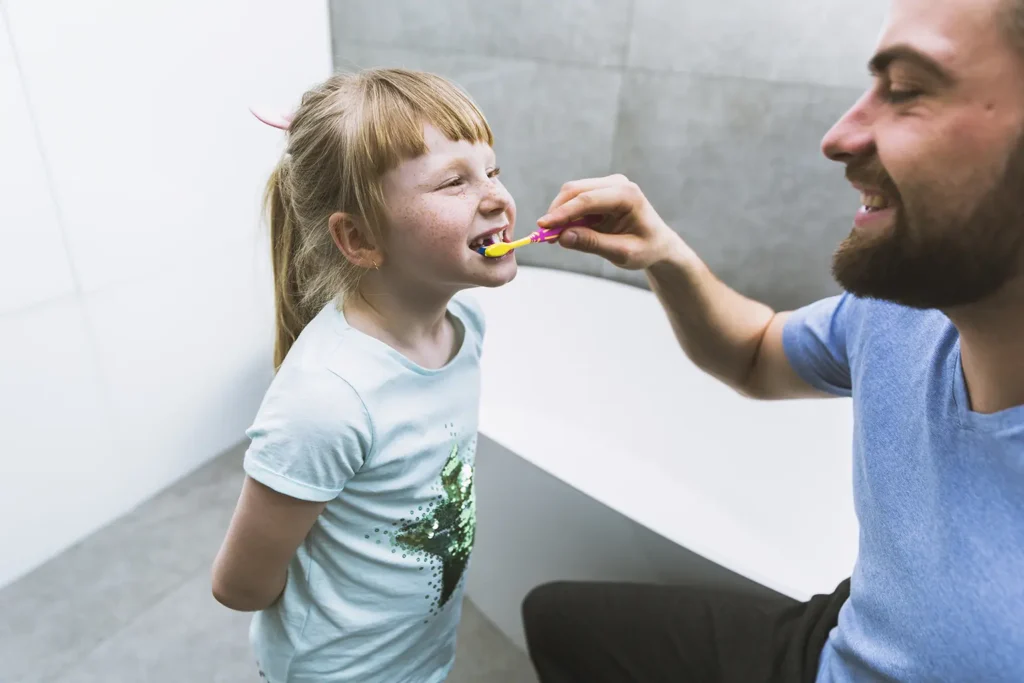Gum health is a vital component of our overall oral health that evolves significantly throughout different stages of life. From childhood to old age, our gums undergo various changes influenced by factors such as genetics, lifestyle, and oral hygiene habits. Understanding these changes and knowing how to care for our gums at each stage can help maintain a healthy smile throughout our lives. This article, provided by Big Sky Family Dental, delves into the transformations our gums experience and offers valuable tips on maintaining optimal gum health.
Childhood: The Foundation of Gum Health
Development and Changes
In childhood, gums are generally healthy and resilient, provided proper oral hygiene is practiced. The primary concern during this stage is the development of healthy habits that will support gum health throughout life. The gums serve as a foundation for the eruption of primary (baby) teeth and later, permanent teeth. As children grow, their gums will undergo several changes:
- Teething: This is the first significant change, where the gums might become swollen, red, and tender as the baby teeth start to emerge.
- Primary Teeth: Once the baby teeth are fully erupted, the gums will generally be pink and firm, assuming good oral hygiene is maintained.
- Transition to Permanent Teeth: Around the age of six, children start to lose their baby teeth, making way for permanent teeth. This phase can cause temporary gum irritation and sensitivity.
Care Tips
- Brushing and Flossing: Teaching children to brush twice daily with fluoride toothpaste and to floss regularly is crucial. Use a soft-bristled toothbrush to avoid damaging delicate gum tissue.
- Regular Dental Visits: Routine check-ups with a dentist ensure any potential issues are addressed early. Professional cleanings remove plaque buildup that can harm the gums.
- Healthy Diet: Encourage a balanced diet rich in fruits, vegetables, and dairy products to support strong teeth and gums. Limit sugary snacks and drinks that can lead to plaque buildup and gum disease.

Adulthood: Maintaining Optimal Gum Health
Changes and Challenges
Adulthood brings a new set of challenges for maintaining gum health. Hormonal changes, lifestyle choices, and underlying health conditions can all influence gum health:
- Hormonal Changes: Pregnancy, menstruation, and menopause can cause hormonal fluctuations that affect the gums. Pregnancy gingivitis is a common condition where gums become swollen and bleed easily.
- Lifestyle Factors: Smoking, poor diet, and stress can contribute to gum disease. Smoking, in particular, is a significant risk factor for periodontal disease.
- Periodontal Disease: This is an advanced form of gum disease that can lead to tooth loss if not treated. It’s more prevalent in adults and is often a result of untreated gingivitis.
Care Tips
- Consistent Oral Hygiene: Brush twice a day and floss daily to remove plaque and prevent gum disease. Consider using an antibacterial mouthwash to reduce bacteria in the mouth.
- Regular Dental Check-ups: Visit your dentist at least twice a year for cleanings and check-ups. Professional cleanings are essential for removing tartar that cannot be eliminated by brushing alone.
- Healthy Lifestyle: Maintain a balanced diet, avoid smoking, and manage stress to support gum health. Regular exercise can also improve overall health, contributing to healthier gums.
- Manage Health Conditions: Conditions like diabetes can affect gum health. Managing such conditions with the help of a healthcare provider can prevent complications.
Old Age: Preserving Gum Health
Changes and Concerns
As we age, our gums continue to change, and maintaining gum health becomes even more critical. Several factors can impact gum health in older adults:
- Receding Gums: Gums may recede with age, exposing the roots of the teeth and increasing sensitivity and risk of decay.
- Dry Mouth: A common issue in older adults, dry mouth can result from medications or certain health conditions, reducing saliva flow that helps protect gums and teeth.
- Weakened Immune System: An aging immune system may struggle to fight off infections, including gum disease.
Care Tips
- Gentle Oral Care: Use a soft-bristled toothbrush and brush gently to avoid irritating receding gums. An electric toothbrush can be beneficial for thorough cleaning.
- Stay Hydrated: Drink plenty of water to combat dry mouth. Chewing sugar-free gum can also stimulate saliva production.
- Regular Dental Visits: Continue to see your dentist regularly for check-ups and cleanings. Discuss any changes in your oral health with your dentist.
- Dental Treatments: Consider treatments like fluoride gels or rinses to strengthen teeth and gums. Dental professionals may also recommend treatments for dry mouth or other age-related gum issues.
- Healthy Diet: Maintain a balanced diet rich in nutrients that support oral health. Foods high in calcium and vitamin C are particularly beneficial for gums.
Recognizing and Addressing Gum Problems
Regardless of age, being vigilant about changes in gum health is essential. Here are some signs to watch for and address promptly:
- Red, Swollen Gums: Indicates inflammation, which could be a sign of gingivitis or periodontal disease.
- Bleeding Gums: Gums that bleed easily during brushing or flossing suggest gum disease.
- Receding Gums: Exposing the roots of the teeth can lead to sensitivity and increased risk of decay.
- Persistent Bad Breath: Often a symptom of gum disease.
- Loose Teeth: A serious sign that requires immediate dental attention.
If you notice any of these symptoms, schedule an appointment with Big Sky Family Dental promptly. Early intervention can prevent more serious gum issues and preserve your oral health.
Conclusion
Maintaining gum health is a lifelong commitment that evolves with each stage of life. From establishing good habits in childhood to addressing the unique challenges of adulthood and old age, caring for your gums is essential for overall health and well-being. At Big Sky Family Dental, we are dedicated to helping you achieve and maintain optimal gum health through personalized care and professional guidance. By following the tips outlined in this article and maintaining a healthy lifestyle, you can ensure your gums remain healthy and strong at every age.
Remember, your gum health is crucial for a beautiful smile and a healthy lifestyle. Regular dental visits, proper oral hygiene, and a balanced diet are key to maintaining healthy gums. If you have any concerns about your gum health, don’t hesitate to contact Big Sky Family Dental for expert advice and care. Your smile deserves the best, and we’re here to help you achieve it.


